Cracking the secret of a longer life
- Published
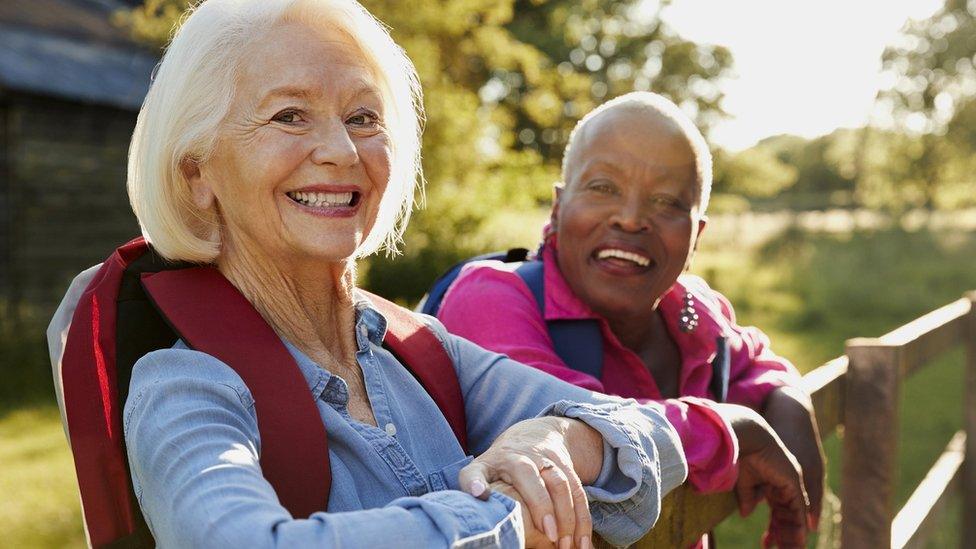
Stay active and eat well: We know what we should do but how many of us do it?
Most of us would like to lead long and healthy lives, but what, if anything, can we do to make it possible?
Longer life is the one thing you can't buy making it something of a preoccupation for the Davos elite, but what do experts suggest?
I'm not sure longevity expert Dan Buettner got the Davos memo.
At the World Economic Forum, whose official aim is to try and solve some of the world's biggest problems, positive thinking is a must.
It's like being surrounded by thousands of clones of cartoon character Bob the Builder constantly chanting his signature theme tune: "Can we fix it? Yes we can".
Mr Buettner has spent the past 17 years studying what he's called blue zones - the communities around the world who live the longest and healthiest lives.
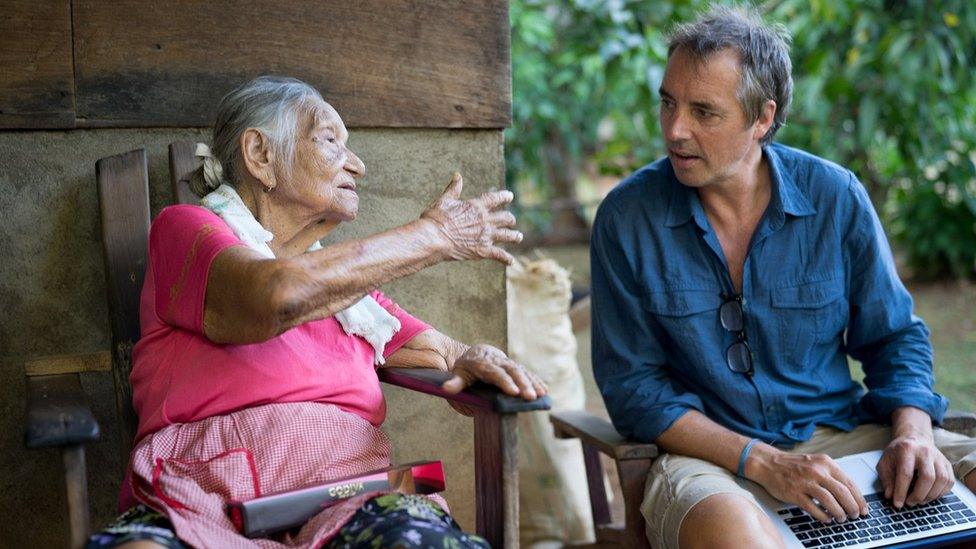
If you're actively pursing longevity, you're trying too hard, says Dan Buettner
Yet ask him what the secret to living longer is and he doesn't mince his words.
"The key insight is that trying to pursue longevity always fails. It took me 15 years to discover that," he says deadpan.
Like diets and exercise, knowing what you should do and what you actually do are two different things.
The problem is that most people simply "don't stick with anything", he says: "It's not 'I'm going to do this thing today and it'll last for 60 decades', you have to do the right things and not do the wrong things proactively for six or seven decades."

Where are the blue zones?
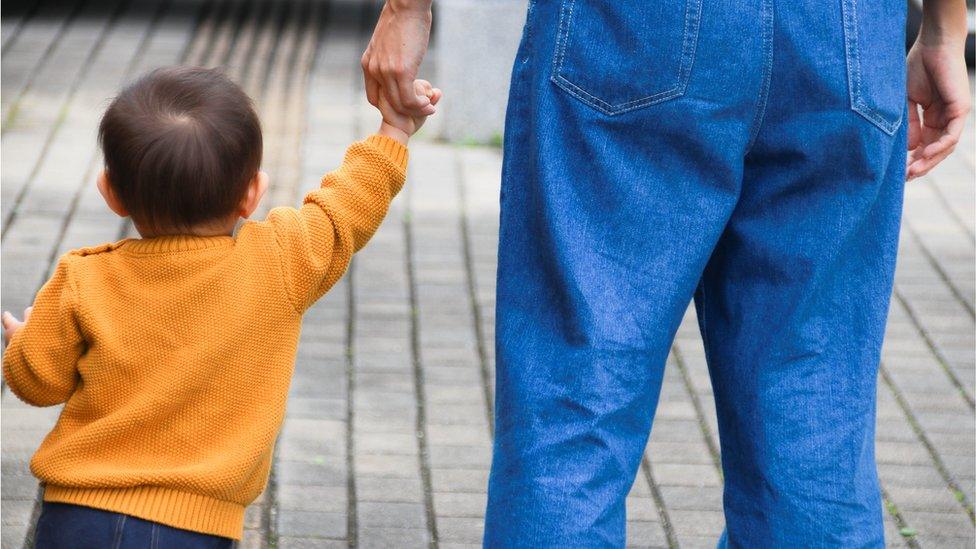
Blue Zones include the Greek island of Ikaria; the Japanese island of Okinawa; , the Barbagia region of Italy's Sardinia; Loma Linda, a small city in California; and the Nicoya peninsula in Costa Rica
Mr Buettner says there are nine key habits that people living in these places share.
They keep moving
They have a sense of purpose
They have ways of de-stressing
They only eat enough to be 80% full
They eat mainly beans, with vegetables, fruit and whole grains
They drink moderate amounts of wine
They're part of a religious community
Have close family ties
Have good friends and socialise

Mr Buettner says the real secret of people who live the longest is that none of them are consciously trying to, but they just happen to live in the right places.
It could be a disappointing revelation for the Davos elite - the leaders of companies, top politicians and celebrities.
Many of them earn millions and sometimes billions of pounds, yet the one thing their money cannot buy them is a longer life.
Yet Mr Buettner hasn't given up on the idea of helping people live longer - far from it.
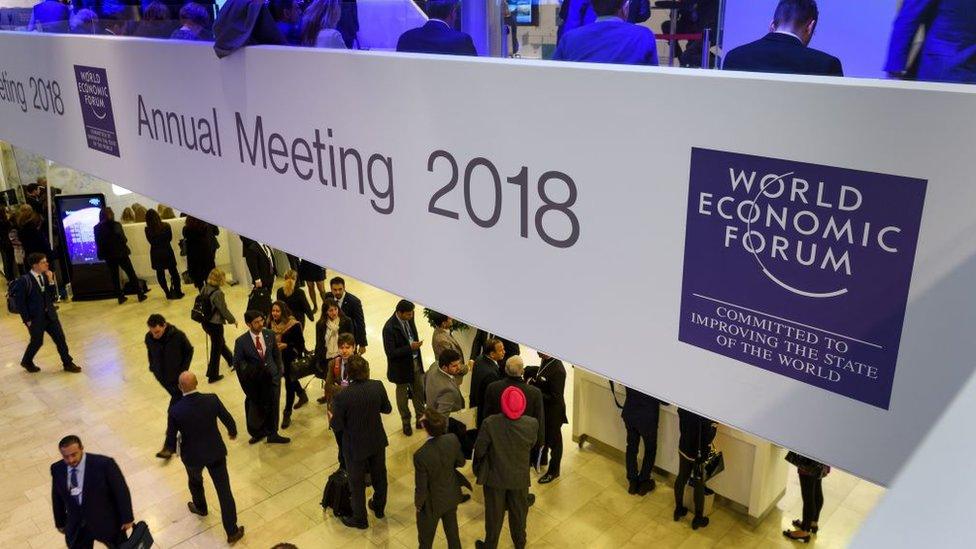
The one thing money cannot buy is a longer life - for Davos delegates or the rest of us
But he's now trying to change the environment people live in, instead of their behaviour.
His small firm, which has 200 employees, is currently working with 25 US cities and has already had measurable success.
In Albert Lea, Minnesota, a city with about 18,000 people, for example, the average life span is estimated to have risen by 2.9 years and health insurance claims have dropped by 49%.
The improvements came after the city made a series of changes including widening pavements and adding bike lanes to make exercise easier.
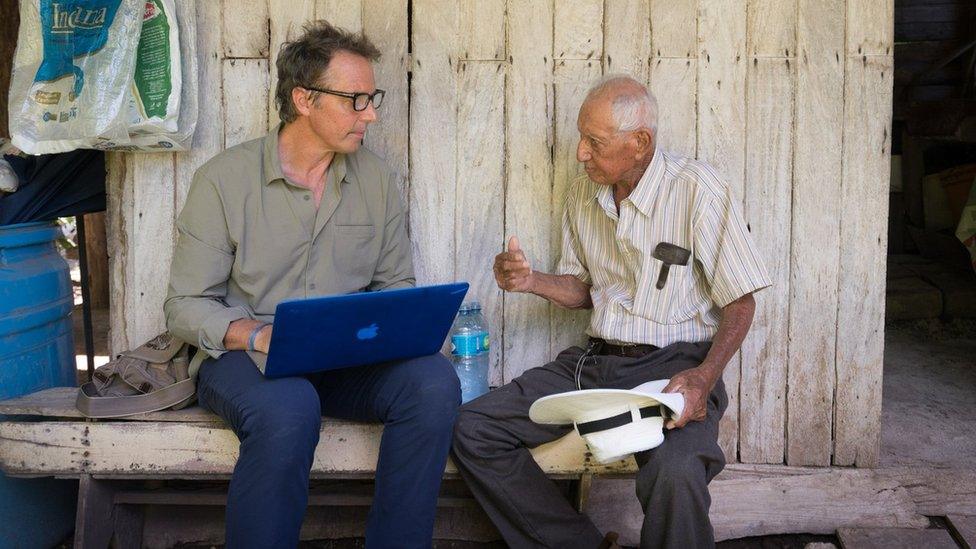
The problem is that most people simply "don't stick with anything", says Dan Buettner
It also offered healthier food options in firms, schools and local stores. A local health insurer funded many of the improvements.
Mr Buettner says the changes were effective because people became healthier without actively trying.
Vegan alternative
It's the same approach that Patrick Brown, the founder of US firm Impossible Foods, has taken with his vegan, plant-based alternative to ground meat.
Unlike Mr Buettner he wants to improve the health of he planet, not directly extend human life.
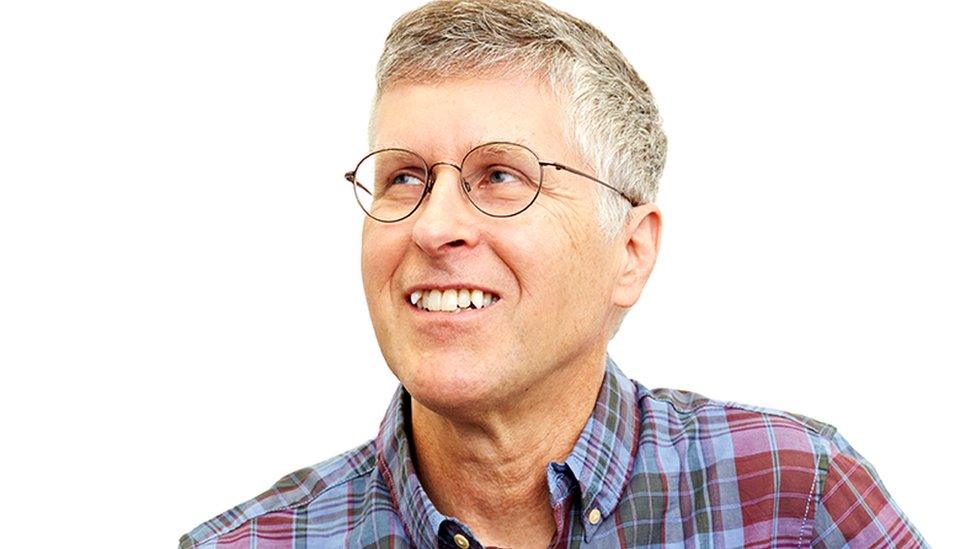
Patrick Brown says the idea is that meat eaters "make no sacrifice" by going vegan
But he's using exactly the same method.
Instead of telling people about the fact greenhouse gases and land use will both fall significantly if they eat less meat, he's just trying to make the food as tasty as possible.
"The idea is that they make no sacrifice. It delivers to them everything they want and so they don't feel like they're making a compromise," he says.
The vegan food is being served at several functions at Davos this year in a variety of forms from meatballs to tacos and burgers.
The plant-based material is made from wheat, coconut oil, potatoes and something called heme that mimics the red, bloody colour of meat.
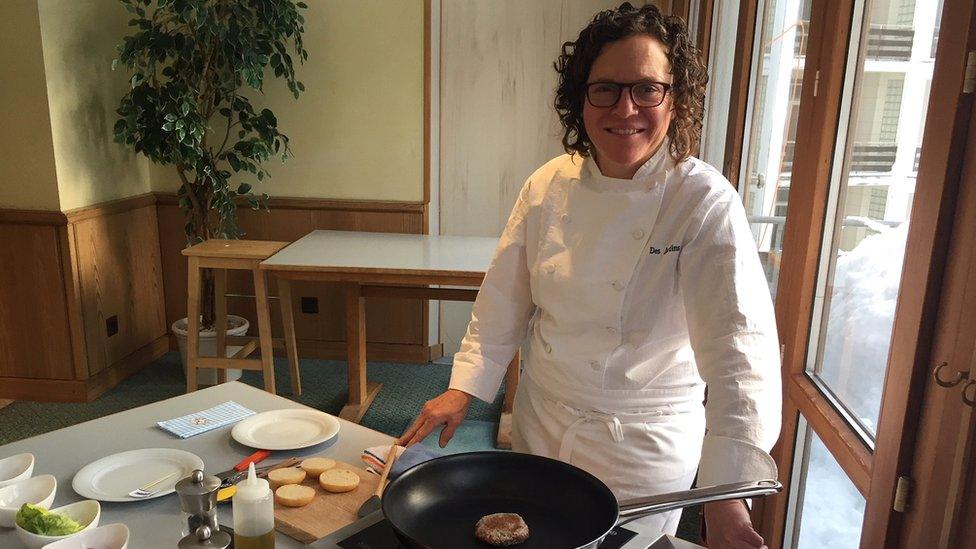
Traci Des Jardins says sales of vegan and meat burgers are split 50/50 at one of her restaurants
Top US chef Traci Des Jardins - here to teach local Davos cooks - how to prepare the food - says so far Impossible Foods' approach appears to be working with many WEF attendees asking for second helpings.
At one of her US restaurants where she serves this burger alongside a meat one, she says sales are equally split.
Because I'm meeting Mr Brown in the morning, I get to sample one for breakfast, not when I'd normally eat a burger.
Personally I feel the texture isn't right. It's too soft and easy to swallow. But once it's inside a bun with ketchup and lettuce I don't really notice.
Improving taste
The fact it's better for the planet and has no cholesterol may temporarily persuade me, but no doubt I'd get a craving for a genuine beef burger after a while.
Mr Brown says his firm is continuing to improve the taste of the vegan meat every week and he is convinced that eventually it will taste better than meat.
He'd better get a move on.
Ultimately his mission is to completely replace animals as a food product by 2035. "We're dead serious about this," he says.
It seems incredibly ambitious but given Mr Buettner's small scale, yet effective experiments in American cities, not impossible.
"Mindlessly healthy" is how Mr Buettner sums it up.
Perhaps he did get the Davos memo after all.